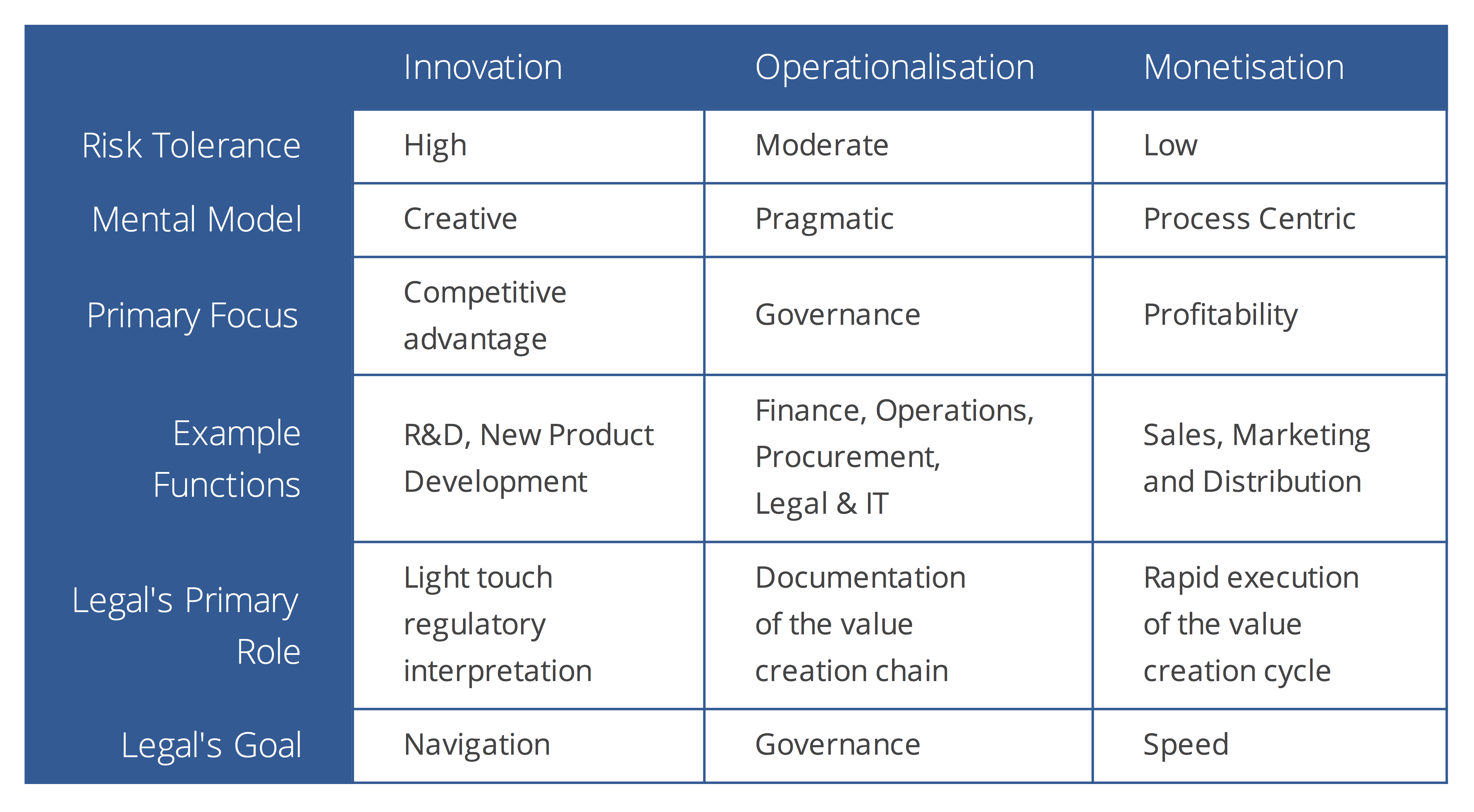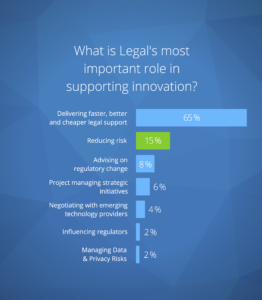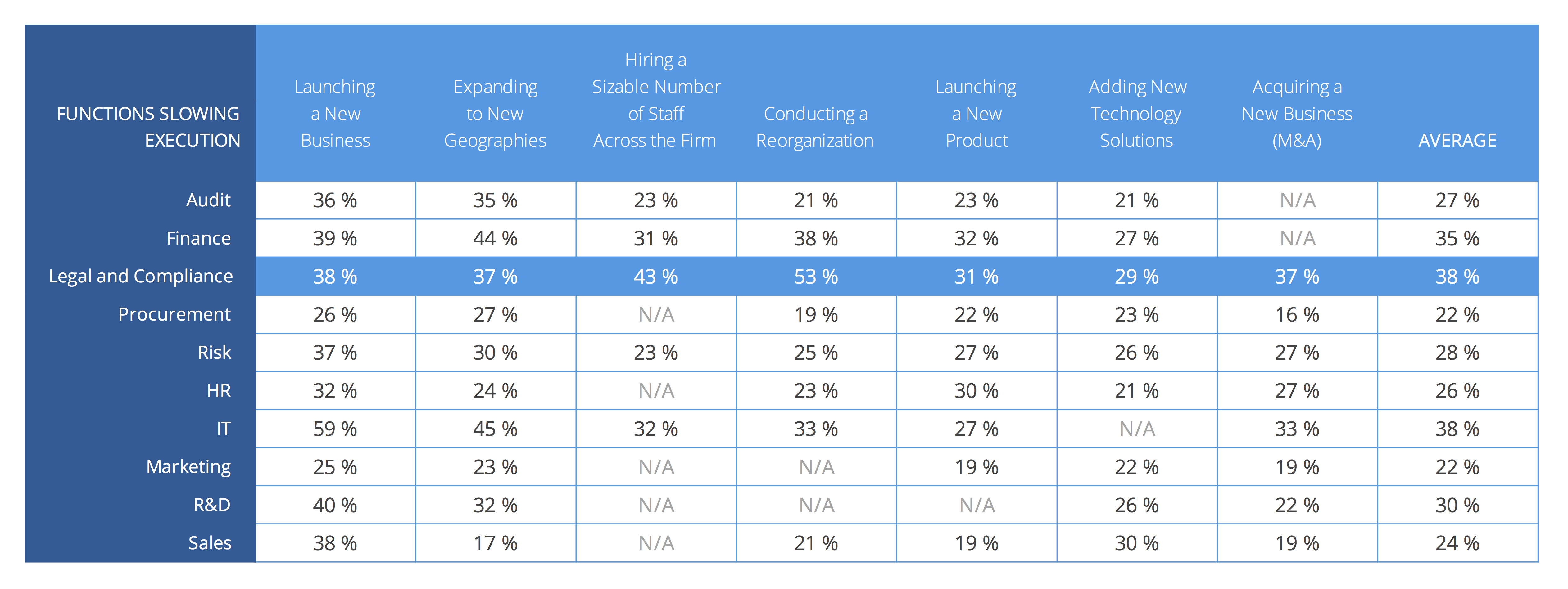Legal's Role in Innovation
Don’t put out the fire before it’s been ignited – a lesson for Legal functions
Innovation. Everyone’s saying it. CEO’s, Boards, The Government, even the stuffiest Law Firms. Yet it’s a classic nebulous buzzword. Few people really know what it means, and even less understand their role in it.
GCs understandably want to be seen to support the CEOs innovation mandate. So they say to the team “we need to increase support for R&D, New Product Development, Strategy etc”. Then trouble starts.
As one Technology GC confided to us, “I told my team we needed to support innovation more. I discovered, a few months later, that my team were at war with our internal ‘Skunk Works’.
Many GC’s argue, with some logic, that if Legal gets involved early they can identify problems before people get into trouble or resources are wasted. However, such a belief is founded on a misunderstanding of the process of innovation.
How does innovation work?
Innovation often starts out as one (often undercooked) idea which turns into something entirely different. For example: Facebook was originally intended as digital address book for Harvard – 15 years later it has a market cap of $446 billion. No self-respecting in-house counsel would have allowed Zuckerberg to accept the Legal risks required to start the site.
But the issue is not as simple as one of opposing risk tolerances. To understand it you must understand that innovation is not a magic ‘Eureka’ moment. Instead, Lawyers need to think of innovation as one of three phases of value creation.
Each of these phases (Innovation, Operationalisation & Monetisation) require different mental models, functions, and risk tolerances. Successful companies delineate each phase, with limited overlaps and elegant hand-offs. Less successful companies allow functions to make land grabs – that kill innovation.

What is Legal’s role in Innovation?
Early on the legal function should play a ‘light touch’ role, predominately around regulatory mapping. Legal has the biggest impact in ‘operationalising’ the innovation (e.g. contracting, IP, regulatory advice). In the final ‘monetisation’ or BAU phase Legal needs to change gears entirely, and provide a different kind of Legal support focused on eliminating Legal Drag. They do this by developing highly scalable (ideally automated) Legal solutions to help the business execute at high velocity and low cost.
As the data below shows, GC’s are right on half of the answer. The biggest impact a Legal function can have is to help the business execute faster, more consistently and cost effectively.

However, they get the second part of the answer wrong. 15% of GCs feel the best thing they can do is ‘reduce the risk of new initiatives’. But as we have seen, the opposite is actually true. Research conducted by Russell Reynolds suggests that top GC’s leverage their deep understanding of Legal and regulatory risk to encourage the business to generate a competitive advantage by accepting more risk. This is counterintuitive to many GCs.
Unfortunately, data from research body CEB shows that Legal functions are doing a poor job of helping the business execute faster. In fact, Legal is perceived as the greatest drag on transformation and innovation initiatives:

Legal functions who seek to insert themselves equally across each phase of value creation are not only wasting resources on innovations that will never see the light of day, they are likely destroying innovation before it’s been crystallized in its’ final form. On the other hand, top entrepreneurs recognise that governance is the enemy of innovation, but the ally of profitability.
The home of your team’s contracts and legal work
Plexus helps everyone in your business execute legal tasks with certainty and speed. Build self-service workflows for routine legal tasks, accelerate your contract lifecycle, and bring clarity, transparency and swift resolutions to legal matters.
Request a call-back
One of our consultants will be in touch ASAP to answer your questions and determine your requirements.
Want to speak to someone instead? Call us on 1300 983 907
Thank you
One of our consultants will reach out to you shortly.
Subscribe
Get weekly legal transformation best practices, benchmarks and trend analysis.
Thanks for subscribing